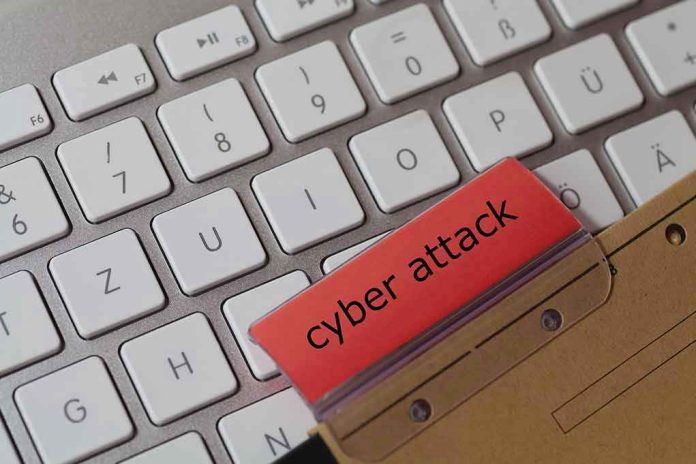
America’s cybersecurity experts are warning that the nation’s critical ports remain dangerously exposed to cyberattacks from adversaries like the Chinese Communist Party, and leaders say it’s time to ditch the “victim mentality” and fight back with robust, proactive strategies.
Story Snapshot
- Frank Cilluffo, director of the McCrary Institute, urges a shift from reactive to assertive U.S. cybersecurity policy
- Repeated cyberattacks on U.S. infrastructure expose vulnerabilities and demand urgent action
- Recent laws reflect bipartisan support for stronger cyber defenses and deterrence
- Experts warn that American ports are a prime target for foreign adversaries and require immediate attention
Cilluffo Calls for End to U.S. Cyber ‘Victim Mindset’
Frank Cilluffo, who leads Auburn University’s McCrary Institute for Cyber and Critical Infrastructure Security, is sounding the alarm: America has spent too long viewing itself as a victim of cyberattacks and must instead develop a more aggressive posture to defend its critical infrastructure. With decades of experience in homeland security and cyber policy, Cilluffo stresses that the U.S. must move “beyond a victim mindset” to anticipate and deter the next wave of attacks targeting ports, energy grids, and other vital sectors.
Cilluffo’s warning has resonated in national security circles, particularly as ports and logistics networks are increasingly identified as weak points that hostile nations like China could exploit. His advocacy comes amidst a backdrop of escalating geopolitical tensions and an unrelenting barrage of state-sponsored cyber intrusions. Cilluffo’s message is clear: America needs to “get out of that mindset” and invest in both resilience and active deterrence to protect its economic and national security interests.
Decades of Experience Shape Policy Recommendations
Cilluffo’s unique perspective draws on his service as a White House advisor after 9/11 and his leadership on the Cyberspace Solarium Commission (CSC), a bipartisan congressional body created to overhaul U.S. cyber strategy. The McCrary Institute under his direction has worked to close gaps between policy, research, and operational security, advocating for strategies that prepare both government and private sector operators for the realities of modern threats.
He played a central role in shaping the recommendations that were adopted into the National Defense Authorization Act–a sign of broad support for a more assertive cyber agenda. These legislative changes have laid the groundwork for public-private partnerships and a new focus on resilience, signaling a move away from the old cycle of reacting only after a major breach has occurred.
Ports: America’s Vulnerable Front Door
The nation’s ports, responsible for moving trillions of dollars in goods each year, are now recognized as high-value targets for cyber sabotage. Experts warn that adversaries like the CCP could disrupt supply chains, cripple commerce, and endanger national security by exploiting weaknesses in port cybersecurity. Cilluffo and other experts emphasize that closing these gaps is not just a matter of technology, but of political will and strategic clarity.
According to Cilluffo, the time for half measures has passed. He urges leaders to adopt a “forward-leaning posture,” combining intelligence sharing, advanced technical defenses, and a culture of readiness among port operators and federal agencies. In line with conservative values, these recommendations underscore the importance of defending American sovereignty, protecting the economy, and ensuring that foreign adversaries cannot exploit our infrastructure for their own gain.
Experts and Lawmakers Back Strategic Shift
Cilluffo’s advocacy has been echoed by industry leaders, lawmakers, and other experts who see the need for a fundamental shift in U.S. cyber strategy. The Cyberspace Solarium Commission’s recommendations, now enshrined in law, reflect a growing consensus that deterrence and resilience must be at the core of American policy. Implementation is ongoing, with a renewed focus on strengthening partnerships between the federal government, states, and the private sector.
While some debate the precise balance between defense and deterrence, there is broad agreement among credible authorities that America cannot afford to wait for the next disaster. As Cilluffo’s research and public testimony have shown, proactive measures are essential to keeping America’s ports–and its future–secure.
Sources:
Tanium: Meet the Man Who Can Help Prevent a Cyber Disaster
The Presidency: Frank Cilluffo
Cyberspace Solarium Commission: Frank Cilluffo
Auburn University: Frank Cilluffo Directory





